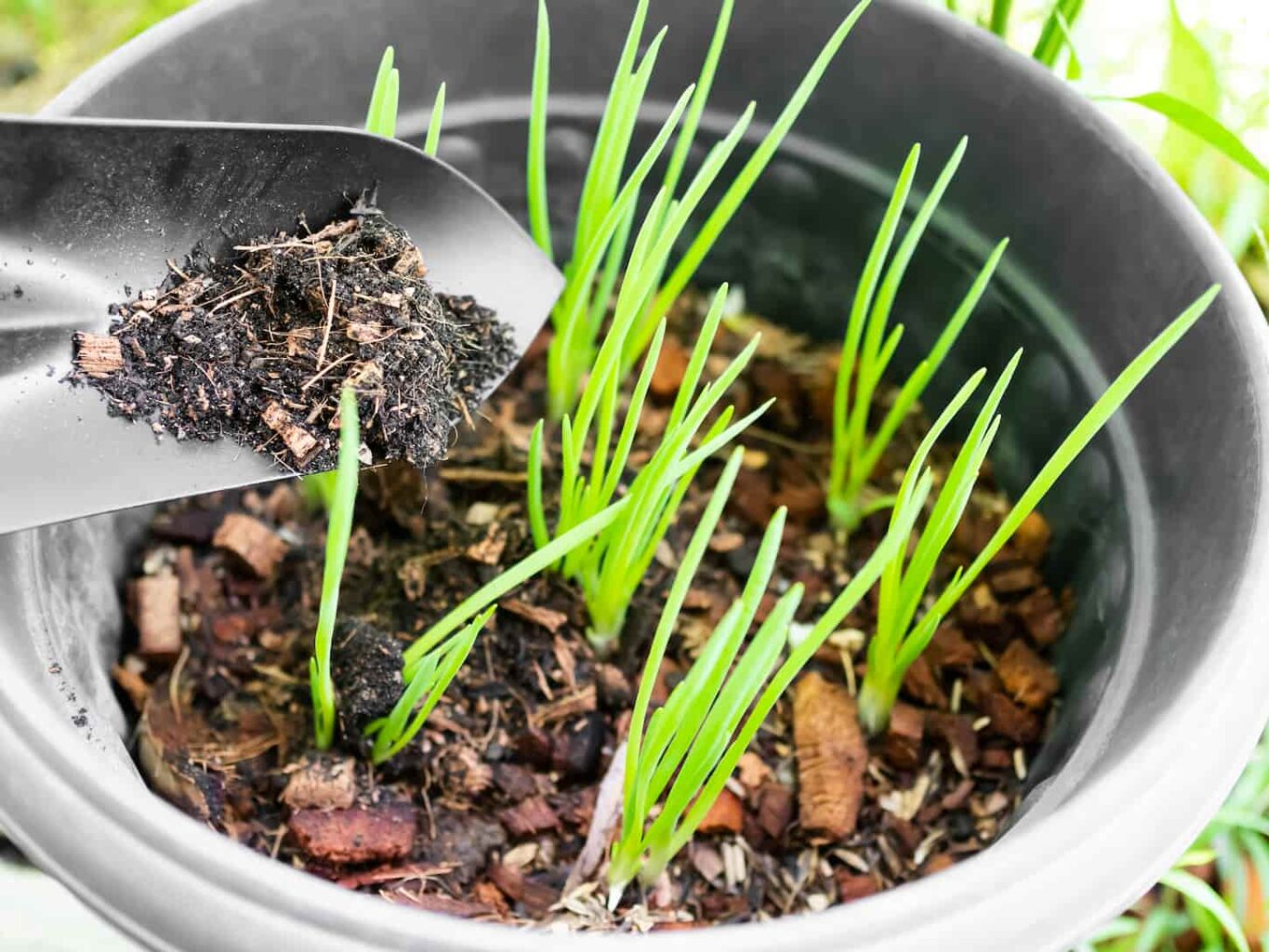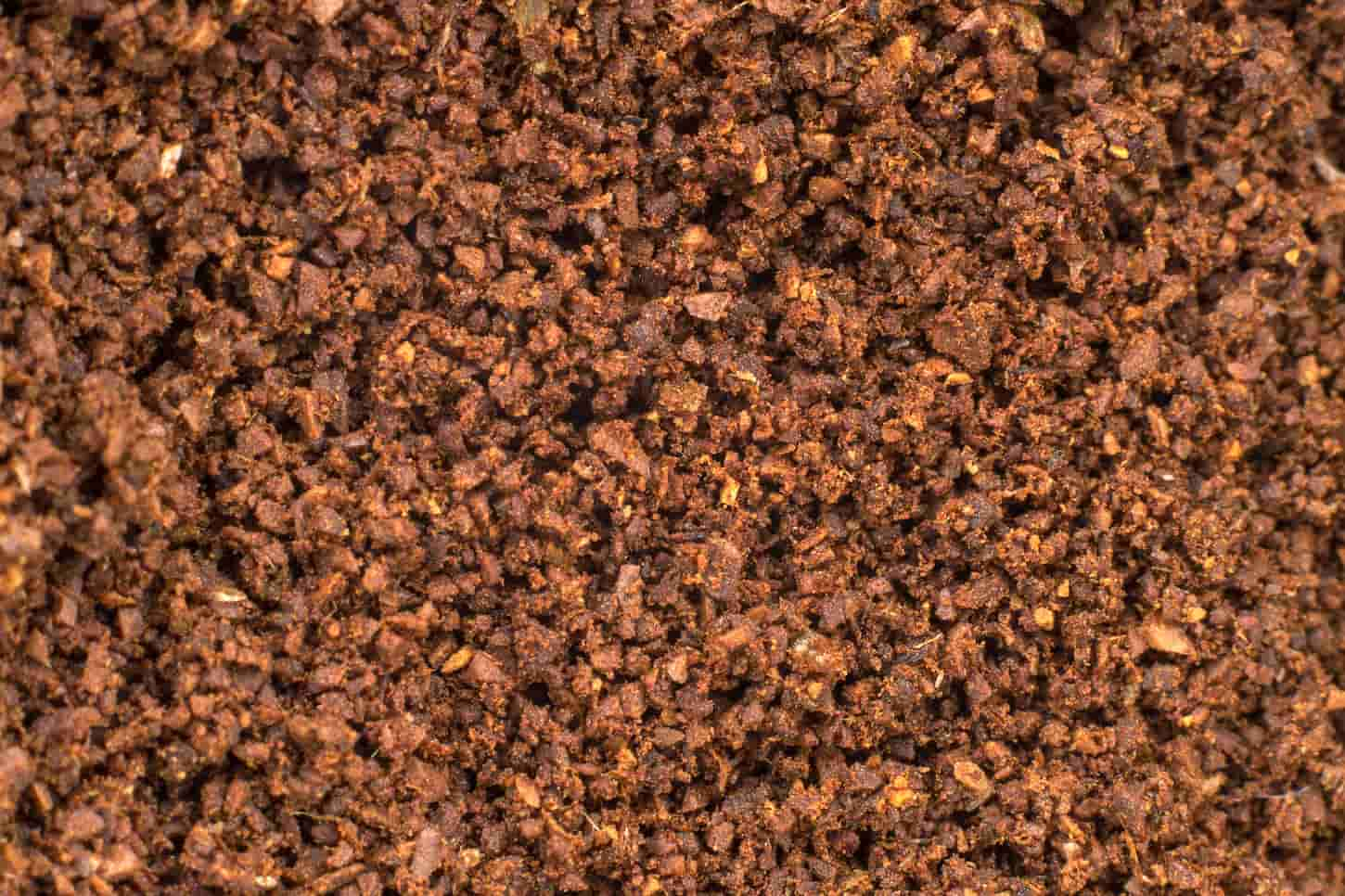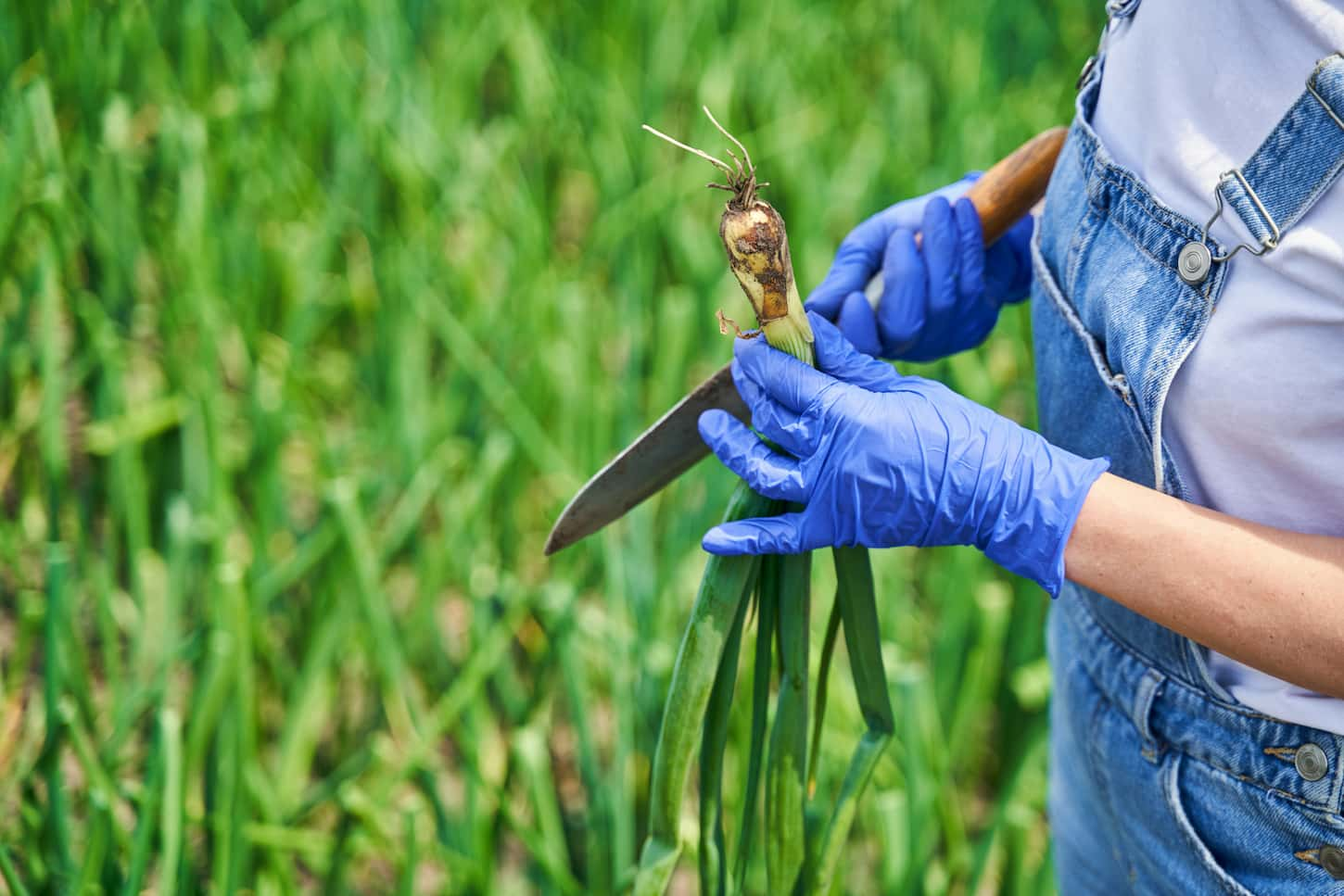Onions may make you cry when you cut them, but the tears are even worse when you realize you’re out of onions at dinner time. Planting some in your garden (to ensure you never run out again) can be easy, but making sure they grow well can be a challenging task without the right fertilizer mix. Which brings up today’s question: do onions like coffee grounds?
Onions do great with coffee grounds, as coffee grounds improve soil drainage and provide nutrients that onions require to thrive. Onion plants flourish with a fertilizer that has plenty of nitrogen and phosphorus. They develop best in sunny spots with fertile and well-drained soil.
Coffee grounds are an affordable and environmentally-friendly option that can assist the growth of your onion plants by giving them their ideal growing conditions. If you want to learn about the benefits in detail and how to make the most out of the coffee grounds you use, keep reading this guide.

What Is the Best Fertilizer for Onion Plants?
Onion plants need a well-fertilized, light, and loose soil with a lot of organic matter and high amounts of nitrogen, potassium, and phosphorus. The best fertilizers for onion plants are composts and composted manure or fertilizers that contain coffee grounds.
Onion plants require a lot of feeding which means nurturing them with sufficient nutrients is essential if you aim for high quality and high yields. Those nutrients should ideally be present in the soil that is not too heavy since it could make the plants work too hard to form bulbs and will hinder their growth.
Vegetables enjoy high amounts of organic matter and this is especially true for onion plants. Decaying organic matter can be a steady source of nitrogen which is a requirement for the growth of onion plants, specifically due to their shallow and weak root systems.
Since the onion roots aren’t very effective at absorbing water you should also make sure to maintain a steady supply of water so the soil is moist and the onion plants grow with no interruptions.
Be careful not to overwater your onions, though, as that can lead to a whole host of other problems related to wet rot and fungal growth.
Although nitrogen is important, organic matter and certain fertilizers can also remove deficiencies in potassium and phosphorous. This will lead to optimal growth, quicker maturing, and larger onion bulbs.
Each garden has different soil and nutrient levels that you should test and keep in mind when considering fertilizers. Keep in mind that sometimes overabundance can be as harmful as deficiencies. For example, nitrogen levels that are too high may lead to late maturity and some deformities that reduce the quality of onion plants.

Why Are Coffee Grounds Good For Onion Plants?
Using coffee grounds is a cheap way to obtain all the essential nutrients that onion plants require. Coffee grounds will also increase the organic material which improves the aeration, drainage, and water retention in the soil. Coffee grounds may provide valuable protection against pests.
Whether as compost or mulch, coffee grounds contain a lot of nitrogen that is slowly released into the soil and benefits the growth of onion plants. Coffee grounds are also packed with significant amounts of potassium and phosphorus and can provide other essential micronutrients such as magnesium, calcium, copper, iron, and zinc.
It’s frustrating when you’ve done everything right yet when the time for harvest comes your yields are hurt because of pests.
Thankfully, coffee grounds and the strong smell they provide can also aid in keeping away pests. It’s not only the smell but also the presence of caffeine in the ground that can be harmful to some organisms, such as slugs, so they will avoid the area altogether.
Applying coffee grounds to protect the plants requires you to carefully sprinkle the grounds around while avoiding them directly touching the plants.
Onion plants thrive in soils at a neutral or around neutral pH that’s between 6 and 8. Coffee is acidic (with unbrewed coffee grounds being more acidic than used grounds), so you do need to be careful not to make the ground too acidic.
That’s why it’s advised to avoid using too many fresh grounds, and even with used coffee grounds regularly water so the acidity gets neutralized. When in doubt, feel free to check the pH levels with a testing kit to make sure you are creating the optimal environment for your onions.
How To Properly Apply Coffee Grounds to Onions (and Avoid Potential Negative Effects)
Applying coffee grounds should be a slow and gradual process where you either mix them into compost and mulch or directly sprinkle them into the soil while making sure the layer isn’t too thick because it prevents the movement of water.
Used coffee grounds contain caffeine, which according to some theories may suppress growth in plants because they wish to reduce competition for nutrients, water, and sunlight in other plants.
To avoid that it may be best to avoid spreading coffee grounds in the very early stages of plant growth. You can also make use of coffee grounds slowly and observe to see if there are any negative results.
Another potential danger is the structure of coffee beans, they are fine particles that can easily lock together and prevent water from reaching the plants. This can be detrimental, especially for onion plants that are dependent on constant moisture.
The solution is simple: mix the coffee grounds before applying them. If you will mix coffee grounds as part of compost make sure that they are around 10 to 20 percent to maximize their effectiveness. If you are going to use them as mulch then mix the coffee grounds with other organic matter. If you decide to sprinkle them on top of the soil make sure to rake them so they are not clumped together.

Next Steps
It’s better to shed some tears while cutting the delicious onion plants you’ve produced than while staring at your empty wallet after having to purchase expensive fertilizers. Coffee grounds are a cheap and green alternative packed with essential nutrients that you shouldn’t miss out on.
Do you want to know if you can use coffee grounds as fertilizer on other garden plants, like cucumbers?
- Here’s the answer I researched and wrote: Do Cucumbers Like Coffee Grounds? (Read Before Planting!)
- Or if you’d rather read about tomatoes, here you go! Are Coffee Grounds Good for Tomato Plants?
That being said, coffee grounds aren’t a cheap fertilizer here in Utah, where most of us don’t drink coffee. So if you do manage to get your hands on some used grounds without paying a crazy amount, feel blessed.
Or, if you can’t find any used coffee grounds for less than it would cost to make your own compost (with or without animal manure), then use that homemade compost instead. Here’s a fun fact: you can compost some of the cooked veggies that don’t get eaten at dinner.
Here’s my guide to the do’s and don’ts on how to compost cooked vegetables, just in case you’re in the “coffee grounds aren’t happening” group with me. Go read that next and enjoy!
Resources
Learning from your own experience is essential, but learning from others is also intelligent. These are the sources used in this article and our research to be more informed as homesteaders.
- ” Onion Planting”, AgriLife Extension, https://aggie-horticulture.tamu.edu/archives/parsons/publications/onions/ONIONGRO.html.
- “A complete fertilization program for an onion”, Haifa, https://www.haifa-group.com/complete-fertilization-program-onion.
- Tong, Cindy, “Growing onions in home gardens”. University of Minnesota Extension, https://extension.umn.edu/vegetables/growing-onions#watering-273360.
- “Quick Guide to Growing Onions”, Bonnie Plants, https://bonnieplants.com/how-to-grow/growing-onions/.
